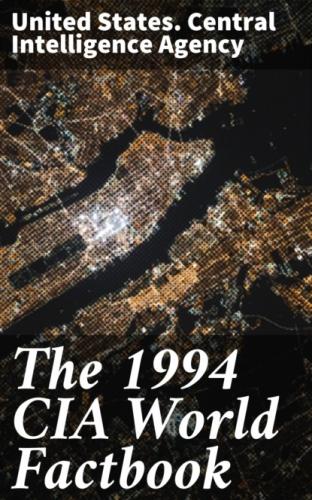Religions:
Buddhist 89%, Christian 4% (Baptist 3%, Roman Catholic 1%), Muslim 4%,
animist beliefs 1%, other 2%
Languages:
Burmese; minority ethnic groups have their own languages
Literacy:
age 15 and over can read and write (1990 est.)
total population:
81%
male:
89%
female:
72%
Labor force:
16.007 million (1992)
by occupation:
agriculture 65.2%, industry 14.3%, trade 10.1%, government 6.3%, other
4.1% (FY89 est.)
@Burma, Government
Names:
conventional long form:
Union of Burma
conventional short form:
Burma
local long form:
Pyidaungzu Myanma Naingngandaw (translated by the US Government as
Union of Myanma and by the Burmese as Union of Myanmar)
local short form:
Myanma Naingngandaw
former:
Socialist Republic of the Union of Burma
Digraph:
BM
Type:
military regime
Capital:
Rangoon (sometimes translated as Yangon)
Administrative divisions:
7 divisions* (yin-mya, singular - yin) and 7 states (pyine-mya,
singular - pyine); Chin State, Irrawaddy*, Kachin State, Karan State,
Kayah State, Magwe*, Mandalay*, Mon State, Pegu*, Rakhine State,
Rangoon*, Sagaing*, Shan State, Tenasserim*
Independence:
4 January 1948 (from UK)
National holiday:
Independence Day, 4 January (1948)
Constitution:
3 January 1974 (suspended since 18 September 1988); National
Convention started on 9 January 1993 to draft chapter headings for a
new constitution
Legal system:
has not accepted compulsory ICJ jurisdiction
Suffrage:
18 years of age; universal
Executive branch:
chief of state and head of government:
Chairman of the State Law and Order Restoration Council Gen. THAN SHWE
(since 23 April 1992)
State Law and Order Restoration Council:
military junta which assumed power 18 September 1988
Legislative branch:
People's Assembly (Pyithu Hluttaw):
last held 27 May 1990, but Assembly never convened; results - NLD 80%;
seats - (485 total) NLD 396, the regime-favored NUP 10, other 79; was
dissolved after the coup of 18 September 1988
Judicial branch:
none; Council of People's Justices was abolished after the coup of 18
September 1988
Political parties and leaders:
Union Solidarity and Development Association (USDA), leader NA;
National Unity Party (NUP; proregime), THA KYAW; National League for
Democracy (NLD), U AUNG SHWE
Other political or pressure groups:
National Coalition Government of the Union of Burma (NCGUB), headed by
the elected prime minister SEIN WIN (consists of individuals
legitimately elected to Parliament but not recognized by the military
regime; the group fled to a border area and joined with insurgents in
December 1990 to form a parallel government; Kachin Independence Army
(KIA); United Wa State Army (UWSA); Karen National Union (KNU);
several Shan factions, including the Mong Tai Army (MTA); All Burma
Student Democratic Front (ABSDF)
Member of:
AsDB, CCC, CP, ESCAP, FAO, G-77, GATT, IAEA, IBRD, ICAO, IDA, IFAD,
IFC, ILO, IMF, IMO, INTELSAT (nonsignatory user), INTERPOL, IOC, ITU,
LORCS, NAM, UN, UNCTAD, UNESCO, UNIDO, UPU, WHO, WMO
Diplomatic representation in US:
chief of mission:
Ambassador U THAUNG
chancery:
2300 S Street NW, Washington, DC 20008
telephone:
(202) 332–9044 or 9045
consulate(s) general:
New York
US diplomatic representation:
chief of mission:
(vacant); Deputy Chief of Mission, Charge d'Affaires Franklin P.
HUDDLE, Jr.
embassy:
581 Merchant Street, Rangoon
mailing address:
American Embassy, Box B, APO AP 96546
telephone:
[95] (1) 82055, 82181
FAX:
[95] (1) 80409
Flag:
red with a blue rectangle in the upper hoist-side corner bearing, all
in white, 14 five-pointed stars encircling a cogwheel containing a
stalk of rice; the 14 stars represent the 14 administrative divisions
@Burma, Economy
Overview:
Burma has a mixed economy with about 70% private activity, mainly in
agriculture, light industry, and transport, and with about 30%
state-controlled activity, mainly in energy, heavy industry, and
foreign trade. Government policy in the last five years, 1989–93, has
aimed at revitalizing the economy after four decades of tight central
planning. Thus, private activity has markedly increased; foreign
investment has been encouraged, so far with moderate success; and
efforts continue to increase the efficiency of state enterprises.
Published estimates of Burma's foreign trade are greatly understated
because of the volume of black market trade. A major ongoing problem
is the failure to achieve monetary and fiscal stability. Inflation has
been running at 25% to 30% annually. Good weather helped boost GDP by
perhaps 5% in 1993. Although Burma remains a poor Asian country, its
